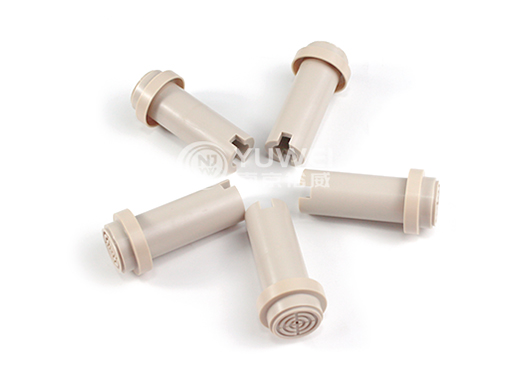
The continuous use temperature of PEEK (polyether ether ketone) material is extremely high, (about 260 degrees), it also has extremely high rigidity and hardness, and unique high tensile strength and fatigue strength. In addition, its heat resistance, non-deformation performance and chemical stability are excellent. The material has excellent dielectric properties before the temperature reaches 260 degrees, and can resist energy ray irradiation. PEEK has excellent comprehensive properties, good mechanical properties, high temperature resistance, and superior chemical resistance, making it the most versatile high-grade plastic.
Features: mechanical strength, high rigidity and hardness, high temperature resistance, chemical resistance and hydrolysis resistance, wear resistance and friction properties, etc. PEEK is widely used in aerospace, medical, machinery, automotive and food processing industries.
PVDF (polyvinylidene fluoride) has higher rigidity and pressure bearing capacity than similar polytetrafluoroethylene, but its smoothness and electrical insulation are slightly inferior. It has high strength and high toughness under low temperature conditions, and can be extinguished by itself. Its working temperature is between -30 degrees and 150 degrees. PVDF is stable to chloride, bromide and energy rays.
Features: The maximum allowable working temperature in the air is high (can work continuously at 150 degrees), excellent resistance to chemical corrosion and hydrolysis, outstanding UV resistance and weather resistance. High mechanical strength, good rigidity, and good creep resistance. Good sliding properties and wear resistance. Inherent low flammability and good electrical insulation performance.
But in terms of temperature and mechanical properties, PEEK is better than PVDF. Nanjing Yuwei has been committed to the field of special plastics for many years, and can perform various molding processes such as extrusion molding, injection molding, compression molding, and machining molding. According to customer drawings and or sample requirements, develop and manufacture injection and compression molds, and customize various specifications and wide-ranging PEEK parts and finished products.